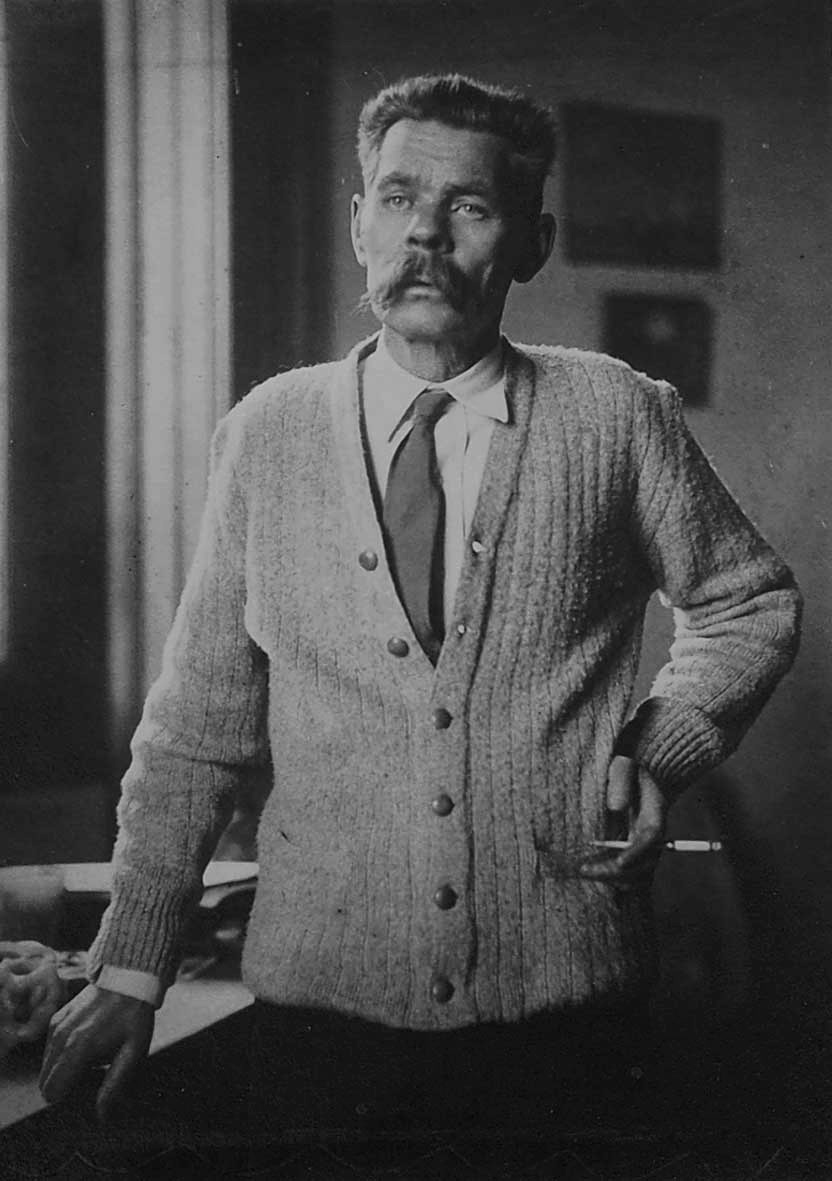When Litvinovsky stepped onto the cobbled streets of Petrograd in 1912, he was met by a city pulsating with contradictions. The air crackled with artistic fervor, political dissent, and the promise of change. Litvinovsky found himself at the heart of a cultural renaissance, a period of exceptional creativity and innovation in the visual, literary, and performing arts that would become known as Russia’s Silver Age.
An active member of the bohemian society that surrounded him, Litvinovsky is rumored to have been friends with poet Anna Akhmatova, whose readings were known to captivate audiences, filled as they were with profound emotion. Akhmatova’s unique ability to capture and express complex feelings in her works—as well as her beauty—no doubt left a lasting impression on the young artist from the small town of Novogeorgievsk. He was also friends with Vladimir Mayakovsky, who would become the leading poet of the Russian Revolution, championing experiment and innovation.
Litvinovsky also seems to have been close with Maxim Gorky, a fervent advocate of the social, political, and cultural transformation taking place in Russia. Gorky’s short story “Pogrom”, in which he provides a first-person account of what he claims to have witnessed in the Volga region in the 1880s, must have resonated with the young artist. The famous Russian author, who would be nominated no less than five times for the Nobel Prize, would later help secure the permission for Bialik and other writers and their families to leave the Soviet Union. Together with his wife, Ekaterina Peshkova, Gorky also worked to protect Jewish writers and poets from the clutches of the Soviet regime.
**
This was also a period that saw the emergence of several composers and musicians whose works left a profound impact on the cultural landscape of the time. Alexander Scriabin’s music was characterized by a deeply philosophical approach, seeking to unify the arts in a post-Wagner, Russian style Gesamtkunstwerk (“total artwork”) based on the holistic example of Diaghilev’s Ballets Russes. Igor Stravinsky’s groundbreaking compositions, like “The Firebird” and “The Rite of Spring”, aimed to unify the arts too. There was also Sergei Prokofiev’s melodic inventiveness and rhythmic vitality, and Arthur Lourié’s musical compositions with their close connections to contemporary poets and artists. All this must have left an indelible mark on Litvinovsky, creating his lifelong habit of playing music as he painted.
Visit the Exhibition "You Must Choose Life – That Is Art: Pinchas Litvinovsky".
Main Photo: Envato Elements